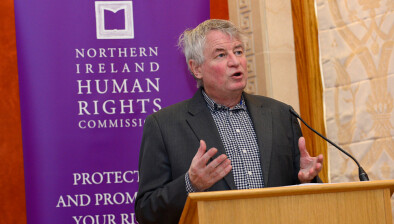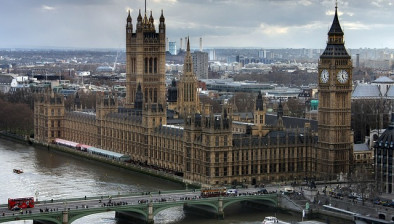NI High Court: SPUC loses claim that abortion regulations for impaired foetuses amount to disability discrimination

Northern Ireland’s High Court has dismissed two applications for judicial review challenging The Abortion (Northern Ireland) Regulations 2021.

About this case:
- Court:NI High Court
- Judge:Mr Justice Adrian Colton
The court found that the EU-UK Withdrawal Agreement had not impacted human rights laws involving abortion on the grounds of severe foetal impairment, and that the Secretary of State for Northern Ireland had not acted ultra vires in enacting regulations which sought to provide access to abortion services.
Background
Section 9 of the Northern Ireland (Executive Formation etc) Act 2019 imposed specific duties on the Secretary of State in relation to the provision of abortion and post abortion services in Northern Ireland.
The Abortion (Northern Ireland) Regulations 2021 were made in exercise of the powers conferred by sections 9 and 11 of the 2019 Act.
The Secretary of State subsequently issued the Abortion Services Directions 2021, which require, amongst other things, that the Department of Health secure the commissioning of abortion services in Northern Ireland by 31 March 2022.
The applicant
The applicant, the Society for the Protection of Unborn Children (SPUC), challenged the 2021 Regulations on several grounds, principally that sections 9(4) and 11(2) of the 2019 Act did not give the Secretary of State the power to bypass the Northern Ireland Act 1998, arguing that the 2021 Regulations impliedly purported to amend the 1998 Act by giving the Secretary of State a power greater than he possessed under section 26 of the 1998 Act and were therefore ultra vires.
They also argued that, insofar as the 2021 Regulations were intended to facilitate the implementation of the 2020 Regulations, they were ultra vires by reason of Article 2(1) of the Ireland/Northern Ireland Protocol of the EU Withdrawal Agreement and EU Law, both of which prohibited abortion on the grounds of disability.
The court granted leave to Mrs Rosaleen McElhinney to intervene by way of written submissions. Mrs McElhinney’s youngest daughter, Cara Rose, aged 15, has Down’s syndrome. She feared the impact that allowing abortions for foetuses suffering from significant foetal impairment would have on the provision of services provided to Cara Rose.
Consideration of the grounds of challenge
The starting point for consideration was whether the 2021 Regulations were enacted ultra vires. The court concluded that the regulations did not amend the 1998 Act, but instead provided the Secretary of State with an express additional power to carry out the obligation imposed on him by Parliament.
The court noted that much of section 9 was stated in mandatory terms: “The Secretary of State must ensure”. Section 9 was a bespoke provision operating in a very specific and highly sensitive context. It represented the clear and specific will of Parliament, and was passed by a legislature which was fully aware of the terms of those provisions and how they would interact with the Northern Ireland Act 1998.
In the absence of a functioning Assembly, Parliament expressly mandated the Secretary of State to take all such steps as were necessary and appropriate to implement extensive abortion services in Northern Ireland.
The court concluded that the 2021 Regulations were lawfully made under the 2019 Act and were not ultra vires by reason of any provisions of the 1998 Act.
The Withdrawal Agreement
The court also considered whether the 2021 Regulations and Directions were invalid by reason of Article 2(1) of the Ireland/Northern Ireland Protocol in so far as they permitted abortion on the grounds of severe foetal impairment.
The applicant argued that the UN Convention on the Rights of Persons with Disabilities (UNCRPD), as a pre-Brexit EU law, prohibited abortion on the ground of disability. This protection, they argued, ‘disappeared’ in Great Britain as a result of Brexit, but could not be lawfully removed in Northern Ireland by virtue of Article 2(1) of the Protocol.
The court noted that in order to breach Article 2(1) of the Protocol there must be a diminution of rights, safeguards or equality of opportunity, that is, there must have been a protection that existed before the withdrawal of the United Kingdom from the European Union which no longer existed as a consequence of that withdrawal.
However, the court relied on Council decision 2010/48/EC, which outlined that UNCRPD does not have any competence for abortion. In addition, both the Commission and the European Parliament have separately and independently made it clear subsequently that abortion is not an EU competence generally.
Further, the regulations in issue did not impede the free movement of abortion services or restrict access to the market for abortion services. Abortion services in Northern Ireland were not to be provided on a commercial basis, but under the National Health Service, where abortion would be free at the point of service to the patient.
The court concluded that the applicant could not rely on UNCRPD, or the Charter of Fundamental Rights, or EU General Principles, because the issue of abortion is not an EU competence.
The alleged right relied on was not underpinned by EU law prior to 31 December 2020 and therefore there had been no change in Northern Ireland law here a result of Brexit.
As a final point, the court noted that the law of Northern Ireland prior to Brexit allowed for abortion on a different timescale in cases of severe foetal impairment or fatal foetal abnormality. Accordingly, there was, and could not have been, any actual diminution in rights resulting from withdrawal from the EU.
Conclusion
The court stated that despite the fact that abortion can be a “controversial and significant matter and one which excites deeply held opposing views”, the implementation of the law should not be regarded as a significant or controversial matter in the legal sense.
Ultimately, after two years, no provisions for commissioning abortion services in Northern Ireland, in accordance with the 2020 Regulations, have been implemented.
Both applications for judicial review were dismissed.










